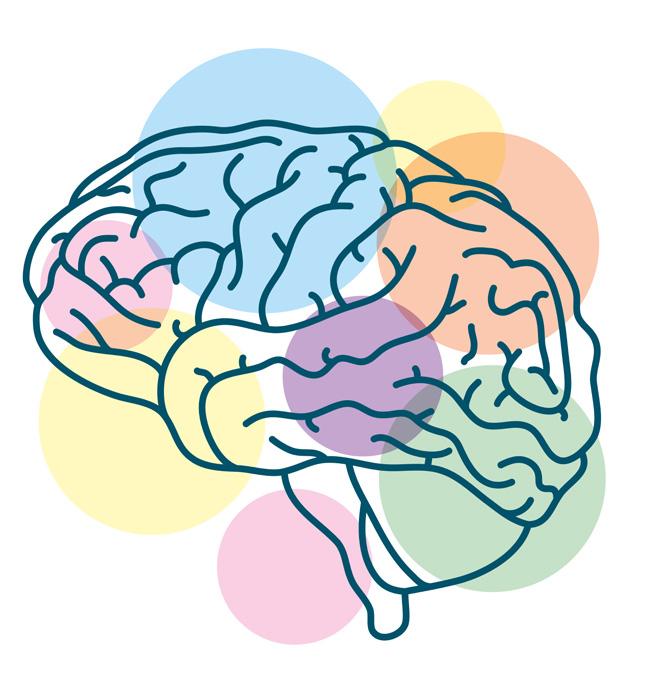
2 minute read
Mental Health Matters
Story by ANA PENA-VELASCO Design by KAYLA ANDERSON
Mental health is a person’s condition in regard to their psychological and emotional well-being. According to the American Psychological Association, 95% of college counseling directors surveyed said the number of students with significant psychological problems is a growing concern in their center or on campuses. Christina Mick is the Assistant Director of the Counseling Center at Tennessee Tech University who offered her insight on mental health. Esme Martinez is a college graduate who experienced mental health issues herself as a student. Mick and Martinez each offer a professional and personal aspect on how mental health should be addressed and what it feels like to struggle with a mental health disorder. Mick said, “A mental health condition consists of mental health illnesses related to mood, thinking, and behaviors.” “The four major mental health illnesses are related to anxiety, depression, disordered eating, post-traumatic stress, personality issues, and psychotic illnesses,” stated Mick. She continued by saying that if “left untreated, mental illness and mental health conditions may be related to severe behavioral, emotional, and physical health issues.” According to the Chadron State College Care Team, mental health issues are prevalent on college campuses. With mental health issues about 75% of lifetime cases begin by the age of 24. There is one in four young adults who are between the ages of 18 and 24 who are diagnosed with mental illness. There is also more than 25% of college students who have been diagnosed or have been treated by a professional for mental health conditions within the past year. Mick mentioned that, “according to the American College Counseling Association one out of every five college students are affected with depression, and one out of every 10 college students are affected in some way by anxiety.” Mental well-being is a major issue at colleges and universities across the nation. Mick continued by saying, “since I was a student at Tennessee Tech several years ago myself . . . more attention has been brought to the importance of students’ mental well-being to include such areas as learning resiliency, learning healthy coping skills, and seeking out counseling services. Fortunately, the stigma of seeking mental health services is decreasing.” According to the innovativeeducators.org 85% of surveyed college students said they felt overwhelmed by everything that they had to do in the past year. Within the past 12 months, students reported receiving a lower grade, an incomplete grade, or dropping the course as a factor affecting their individual academic performance. Clinitians report that students stated their primary concerns were anxiety with a 27.4% rate, depression with a 18.2% rate, and stress with a 34.1% rate. Martinez stated that as a student she experienced stress, and depression the most. She said, “I would always rely on music to calm down. Everyone has their own way of calming down whether it is taking deep breaths, exercising, or talking to someone. My stress, anxiety, and depression relief was, and still is listening to music.” She finished off by advising college students to find a stress reliever since stress will happen often and a coping mechanism will come in handy in the years to come. When asking Mick what she would tell students struggling with mental health disorders she stated, “I would encourage anyone who feels that they are being affected by a mental health issue to reach out for assistance. This may be to a physical health provider, hot line, online mental health chat, or the counseling center.”
Advertisement



